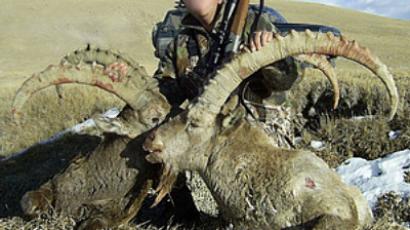Illegal animal trade continues to plague Moscow
Keeping a cat or dog as a pet is nothing unusual in Russia, but for those who want a less common companion, there is a whole exotic black market for animals in Moscow.
At markets it is not just birds from an aviary or rabbits you can buy, the trade in exotic animals goes on behind closed doors. Reptiles, birds of prey, and monkeys all fetch a steep price.
As animal rights activist Evgeny Levinsky says, rare animals represent about 50% of the whole animal market in turnover of dollars: “Each animal costs huge amounts of money and people can make fortunes in the business.”
The journey to Russia is a tale of neglect, with many animals dying en-route from starvation or exposure. And even for the few that get to Russia, it is a deadly lottery whose home they will end up in.
“Eighty percent of the demand is amateurs who buy animals just for fun. They don't understand that a monkey isn't like a CD player, that you can just turn off when you don't need it,” a representative from the International Fund for Animal Welfare explained.
The result is that owners soon get bored of their pets, and one night in the winter they just take it to a park and leave it there. With the first frost it dies, and the body is quickly picked apart by feeding crows.
Some of the worst offenders are photographers, eager for a cute young chimp or cub for their photo shoots. Yet as they grow up, the animals' wild instincts start kicking in.
In fact, some so-called domesticated beasts have the tendency to run away from their owners. Such was the fate of a lynx that escaped from its owners on a walk and ran amok in the north of Moscow in February 2010, which took authorities several hours to capture. The lynx has now been taken care of, but it is one of the few lucky ones.













